
The Untamed Beauty of Conecuh National Forest
Conecuh National Forest in Alabama is a hidden gem for nature enthusiasts. The forest spans over 83,000 acres and offers a range of outdoor activities. From hiking and fishing to bird watching and camping, there is something for everyone who loves the great outdoors. One of the highlights of Conecuh National Forest is the Conecuh Trail. This trail extends for more than 20 miles and takes you through diverse landscapes. You'll pass through longleaf pine forests, wetlands, and even see some of the local wildlife. It’s a great way to experience the natural beauty of Alabama. The forest is also home to several beautiful lakes and streams. Open Pond Recreation Area is a favorite among visitors. This area offers fishing, picnicking, and a scenic 2.2-mile loop trail around the pond. It is an ideal spot for a relaxing day out with family and friends. If you are interested in camping, Conecuh National Forest has several campgrounds. Blue Lake Campground and Open Pond Campground are two popular options. Both offer amenities like picnic tables and fire rings. Camping here allows you to fully immerse yourself in the tranquility and beauty of the forest. Conecuh National Forest is also a paradise for bird watchers. The forest is part of the Alabama Coastal Birding Trail. You can spot a variety of bird species, including the rare red-cockaded woodpecker. Bring your binoculars and enjoy a day of bird watching in this serene setting.
Local tips in Conecuh National Forest
- Visit in the spring or fall for the most comfortable weather and to see the forest at its most vibrant.
- Bring insect repellent, especially during the summer months to keep mosquitoes at bay.
- Check the forest's website for any trail closures or alerts before planning your hike.
- If you're interested in bird watching, dawn and dusk are the best times to spot the most species.
- Carry enough water and snacks, as amenities can be sparse in some parts of the forest.
- Consider a guided tour for a more informative experience and to explore less accessible parts of the forest.
The Untamed Beauty of Conecuh National Forest
Conecuh National Forest in Alabama is a hidden gem for nature enthusiasts. The forest spans over 83,000 acres and offers a range of outdoor activities. From hiking and fishing to bird watching and camping, there is something for everyone who loves the great outdoors. One of the highlights of Conecuh National Forest is the Conecuh Trail. This trail extends for more than 20 miles and takes you through diverse landscapes. You'll pass through longleaf pine forests, wetlands, and even see some of the local wildlife. It’s a great way to experience the natural beauty of Alabama. The forest is also home to several beautiful lakes and streams. Open Pond Recreation Area is a favorite among visitors. This area offers fishing, picnicking, and a scenic 2.2-mile loop trail around the pond. It is an ideal spot for a relaxing day out with family and friends. If you are interested in camping, Conecuh National Forest has several campgrounds. Blue Lake Campground and Open Pond Campground are two popular options. Both offer amenities like picnic tables and fire rings. Camping here allows you to fully immerse yourself in the tranquility and beauty of the forest. Conecuh National Forest is also a paradise for bird watchers. The forest is part of the Alabama Coastal Birding Trail. You can spot a variety of bird species, including the rare red-cockaded woodpecker. Bring your binoculars and enjoy a day of bird watching in this serene setting.
When is the best time to go to Conecuh National Forest?
Iconic landmarks you can’t miss
Conecuh National Forest Open Pond Recreation Area
Escape to nature in Conecuh National Forest at Open Pond: camping, fishing, hiking, and history await near Andalusia, Alabama.
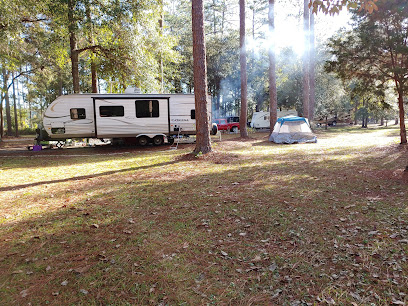
Three Notch Museum
Explore local history at the Three Notch Museum in Andalusia, AL, with exhibits on railroads, military, Native American life, and early industries.
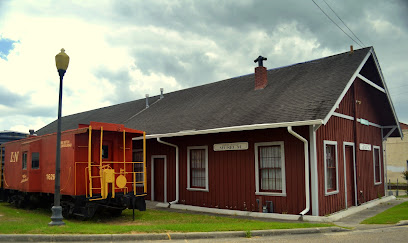
Conecuh National Forest (polygon/area)
Discover Alabama's scenic Conecuh National Forest: hike the Conecuh Trail, camp under the stars, and explore diverse wildlife in this natural paradise.

Unmissable attractions to see
Army Aviation Museum Foundation
Explore the evolution of Army aviation, from early aircraft to modern helicopters, through immersive exhibits and historical artifacts at Fort Novosel.
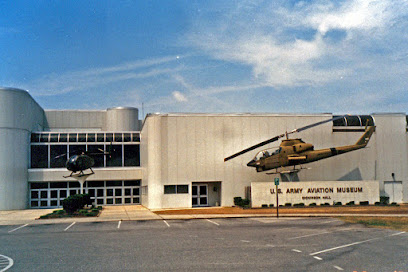
Bamahenge
Experience the mystique of Stonehenge in Alabama! A quirky roadside attraction featuring a full-scale replica and whimsical art installations.
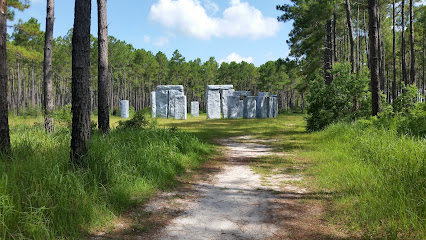
Frank Jackson State Park
Discover outdoor adventures at Frank Jackson State Park in Opp, Alabama: fishing, camping, hiking, and scenic lake views await!
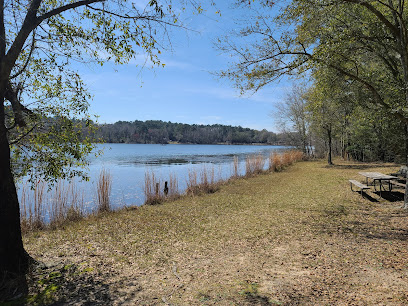
Hank Williams Museum
Discover the early life and musical roots of country music legend Hank Williams at his boyhood home in Georgiana, Alabama.
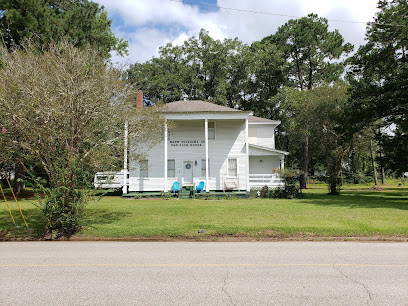
Dinosaur Adventure Land
Explore dinosaurs, science, and the Bible at Dinosaur Adventure Land in Repton, Alabama—a unique family destination where faith meets prehistoric fun.
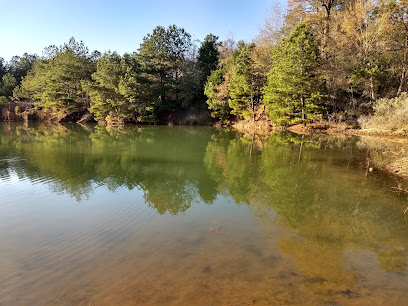
Jennings Park
Discover Brewton's green oasis: a vibrant park with history, recreation, and community events for the whole family to enjoy.
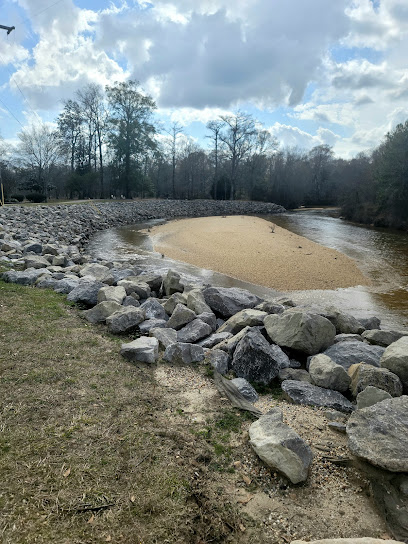
Boll Weevil Monument
A tribute to the tiny pest that changed a town: the Boll Weevil Monument in Enterprise, Alabama, a symbol of resilience and prosperity.
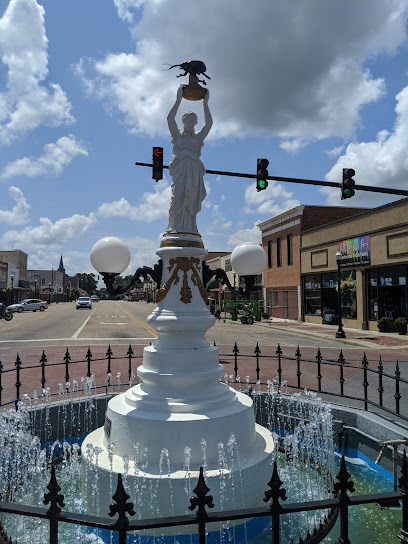
Old Courthouse Museum
Discover the inspiration behind 'To Kill a Mockingbird' at this historic courthouse museum in Monroeville, Alabama, the literary capital of the state.
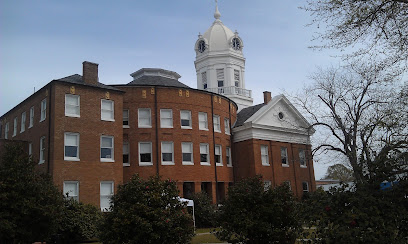
Build A Dream Park
A community-built playground in Andalusia, AL, offering a fun and safe environment for children and families to connect and play.
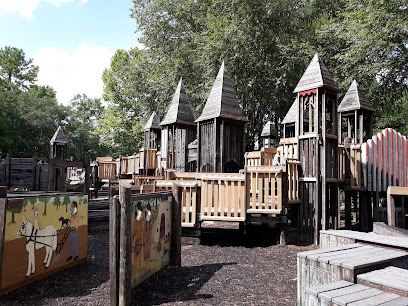
Conecuh National Forest Open Pond Recreation Area
Escape to nature in Conecuh National Forest at Open Pond: camping, fishing, hiking, and history await in this Alabama hidden gem.
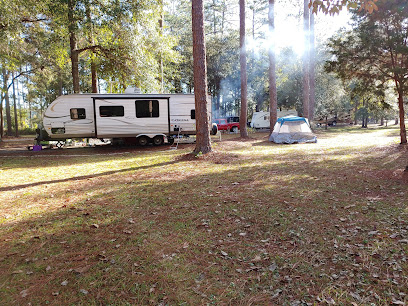
Heritage Park
Discover Atmore's heritage at this park featuring historic buildings, a splash pad, playground, and community events in the heart of Alabama.
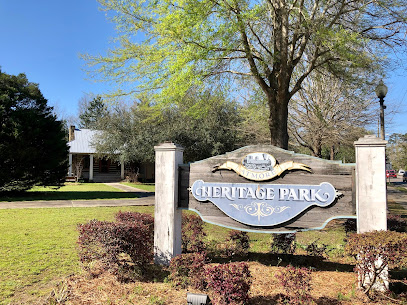
World's Smallest City Block
Discover Dothan's quirky side at the World's Smallest City Block, a unique landmark recognized by Ripley's Believe It or Not! and the World Record Academy.
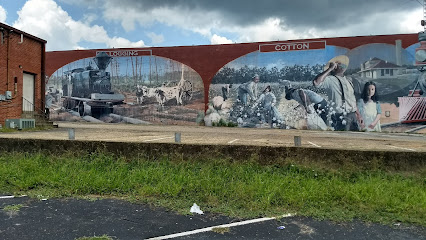
Clausell Park
A spacious park in Monroeville, AL, offering sports facilities, a swimming pool, and picnic areas for a fun day outdoors.
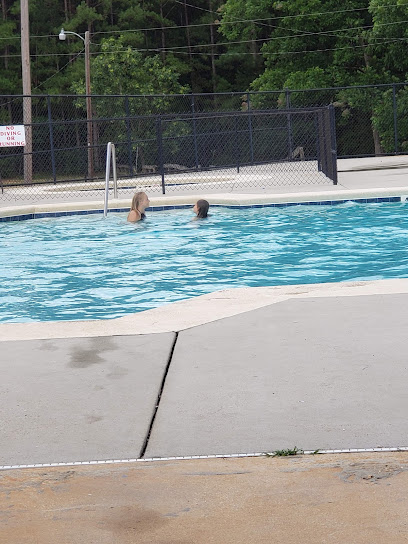
Thomas E. McMillan Museum
Explore Southern Alabama's heritage at the Thomas E. McMillan Museum in Brewton, showcasing Native American, colonial, and early American artifacts.
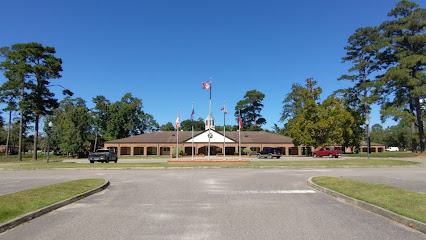
Conecuh National Forest - Trailhead
Discover Alabama's natural beauty in Conecuh National Forest: hiking, camping, fishing, and diverse wildlife await in this southern escape.
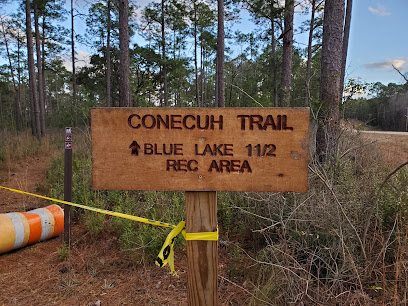
Essential places to dine
David's Catfish House - Andalusia
Experience authentic Southern seafood at David's Catfish House in Andalusia – where every bite tells a story.
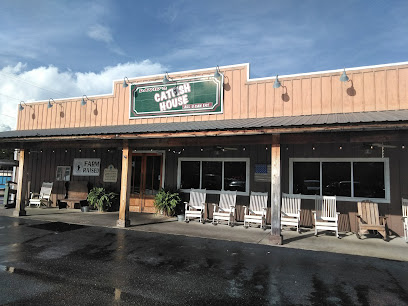
Arby's
Experience classic American fast food at Arby's in Evergreen, AL - where delicious sandwiches meet quick service.
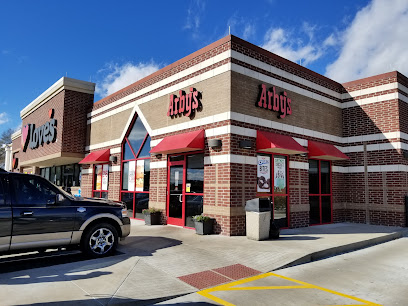
Bates House of Turkey
Discover the authentic taste of Southern cuisine at Bates House of Turkey in Greenville, Alabama - where tradition meets deliciousness.
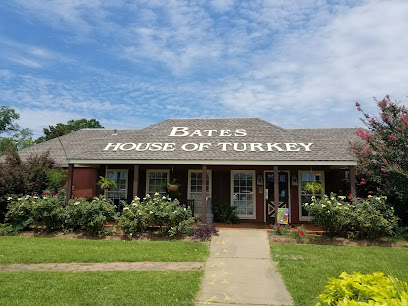
Wendy's
Discover delicious fast food at Wendy's in Evergreen—home of fresh ingredients and irresistible flavors.
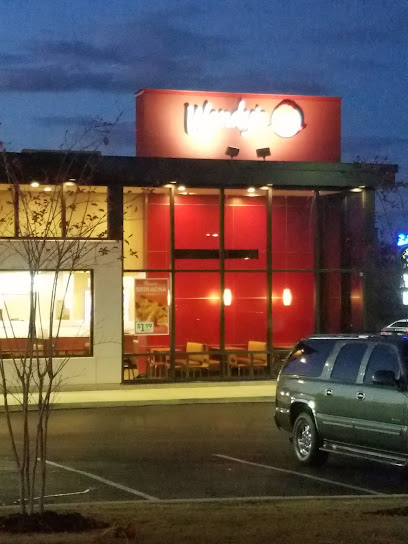
Golden Rule BBQ & Grill of Andalusia
Experience authentic Southern barbecue at Golden Rule BBQ & Grill in Andalusia - where flavor meets tradition in every bite.
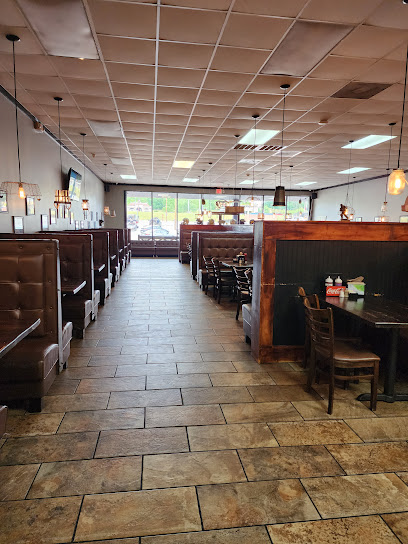
Ketchem's Restaurant, Catering and Venue
Experience Southern hospitality at Ketchem's Restaurant in Hartford, Alabama – a top choice for delicious cuisine and memorable events.
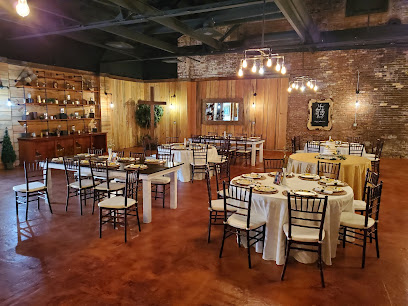
Roadkill Cafe
Discover the quirky charm of Roadkill Cafe in Elberta, Alabama - where humor meets hearty Southern comfort food.
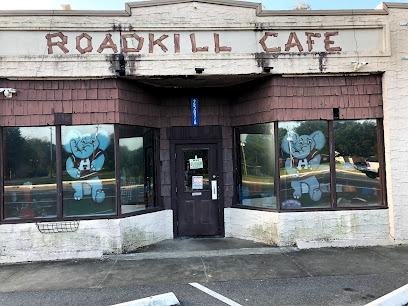
The Old Barn Restaurant
Discover The Old Barn Restaurant in Goshen, Alabama - where succulent steaks meet fresh seafood in a charming rustic setting.
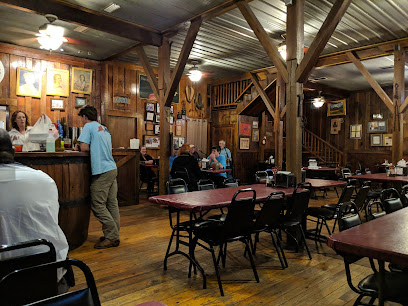
Wheelhouse
Discover the culinary charm of Wheelhouse in Opp, Alabama—where local flavors meet modern dining in a cozy atmosphere.
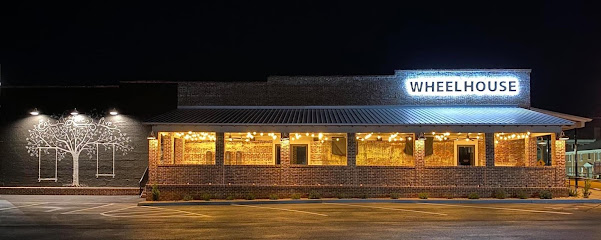
The Depot Restaurant Catering and Venue
Experience Southern hospitality and comfort food at its best at The Depot Restaurant in charming Florala, Alabama.
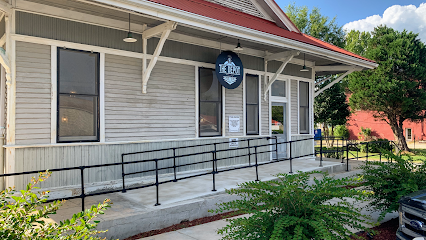
Country Kitchen
Discover delicious breakfast delights and Southern hospitality at Country Kitchen in Opp, Alabama - your go-to spot for hearty meals.
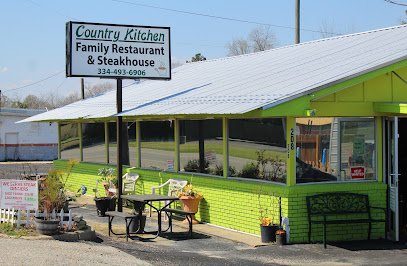
Jalisco Mexican Restaurant
Discover authentic flavors at Jalisco Mexican Restaurant in Evergreen - where every bite takes you on a culinary journey through Mexico.
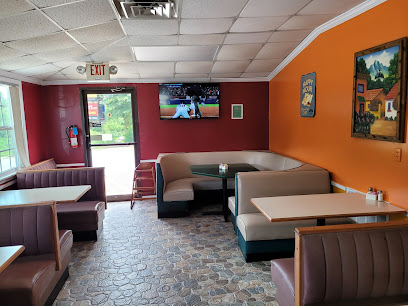
Mossy Grove School House
Experience authentic Southern cuisine at Mossy Grove School House in Troy, Alabama - where every meal feels like home.
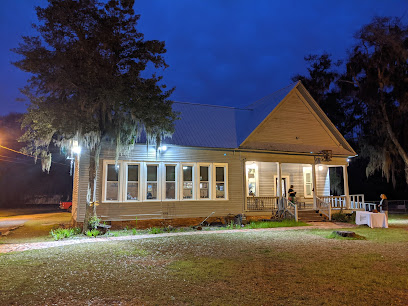
Vikyna Mexican Restaurant
Discover the vibrant flavors of Mexico at Vikyna Mexican Restaurant in Monroeville, Alabama - where every dish tells a delicious story.
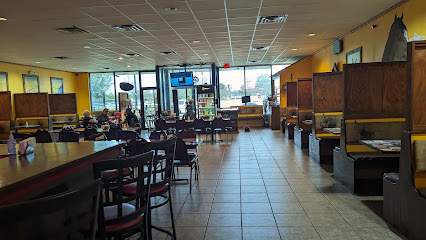
Subway
Discover fresh and flavorful sandwiches at Subway in Evergreen – the perfect stop for quick meals while exploring Alabama's charm.
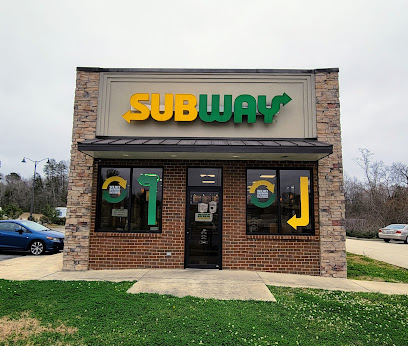
Markets, malls and hidden boutiques
Walmart Supercenter
Explore the Walmart Supercenter in Andalusia for unbeatable prices on groceries, clothing, electronics, and more, making it a vital stop for every traveler.
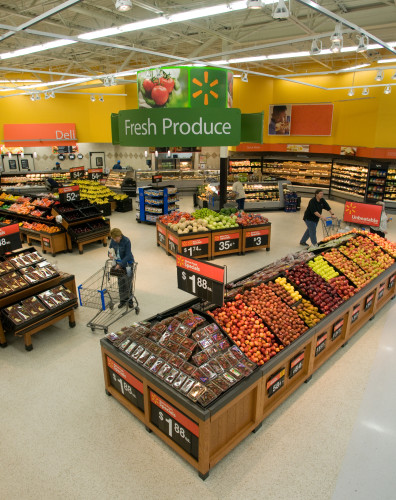
Love's Travel Stop
Discover comfort and convenience at Love's Travel Stop in Evergreen, Alabama, your essential stop for fuel, food, and friendly service on the road.
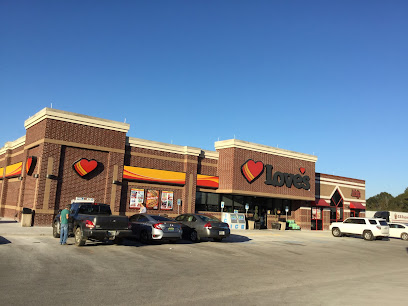
Dirt Cheap
Discover unbeatable bargains at Dirt Cheap in Andalusia, Alabama, where quality meets affordability in a delightful shopping experience.
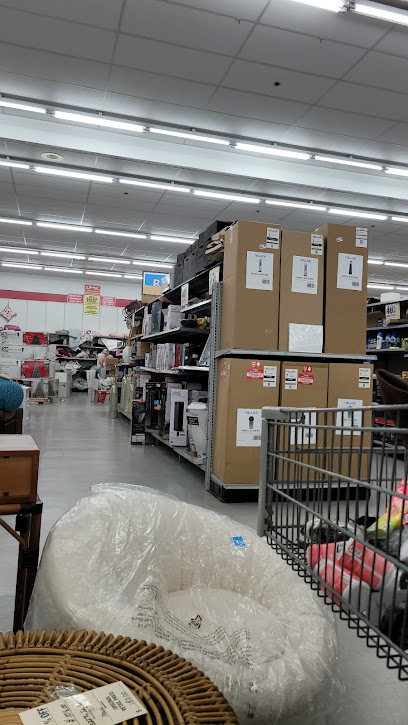
Tractor Supply Co.
Discover Tractor Supply Co. in Brewton, your ultimate destination for farm supplies, gardening needs, and pet care essentials.
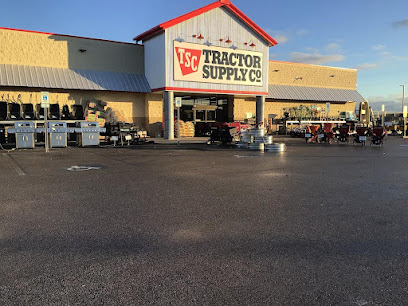
Dollar Tree
Explore Dollar Tree in Andalusia for unbeatable bargains on crafts, groceries, home goods, and more—all at just one dollar!
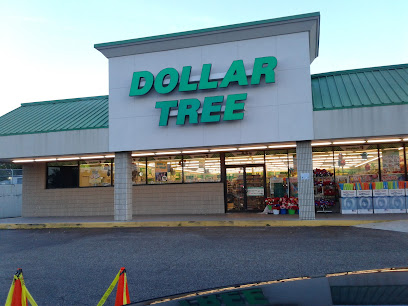
Conecuh National Forest Open Pond Recreation Area
Experience the tranquility of nature at Conecuh National Forest Open Pond Recreation Area, a perfect destination for camping, fishing, and hiking in Alabama.
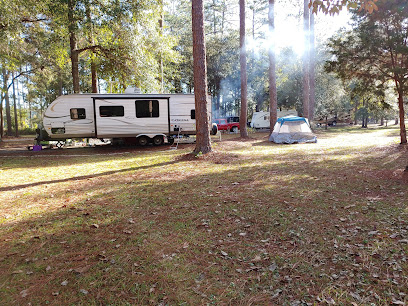
Conecuh National Forest
Explore Conecuh National Forest: Alabama's hidden gem for nature lovers, adventurers, and wildlife enthusiasts.
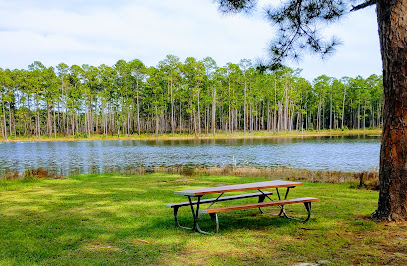
Marathon
Discover Marathon in Evergreen, Alabama - a convenient hub for fuel, snacks, cigars, and liquor on your travel journey.
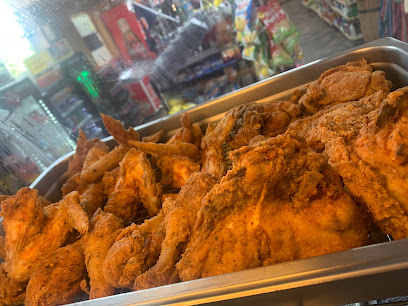
Harbor Freight Tools
Explore a vast selection of quality tools and hardware at Harbor Freight Tools in Andalusia, Alabama, perfect for every DIY enthusiast and professional.
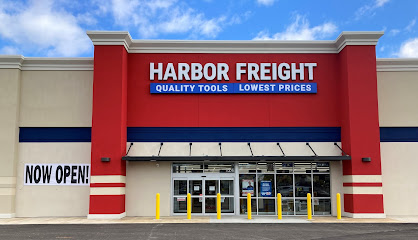
Meredith's Miracles
Explore Meredith's Miracles Thrift Store in Andalusia, AL, where every purchase supports a great cause and unique treasures await.

Five Below
Explore Five Below in Andalusia, where every treasure is priced at five dollars or less, making it the ultimate stop for affordable gifts and unique finds.

Hari Grocery
Discover the vibrant flavors of India at Hari Grocery, your one-stop shop for authentic Indian groceries in Florala, Alabama.
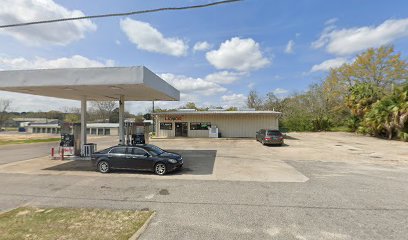
The Lost Crown Tattoo Emporium
Discover the art of self-expression at The Lost Crown Tattoo Emporium in Brewton, Alabama, where every tattoo tells a unique story.
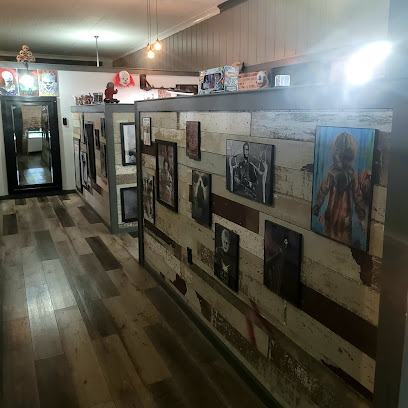
Élan Formals & Boutique
Explore Élan Formals & Boutique for an exquisite selection of formal wear, bridal gowns, and fashion accessories in Andalusia, Alabama.
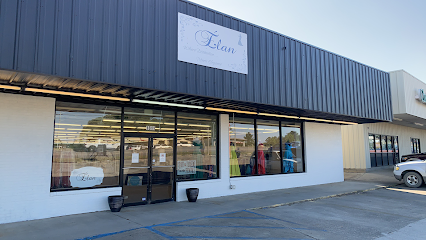
Antigone's Downtown
Explore Antigone's Downtown in Brewton, AL, for unique gifts, antique treasures, and stylish women's wear in a charming setting.
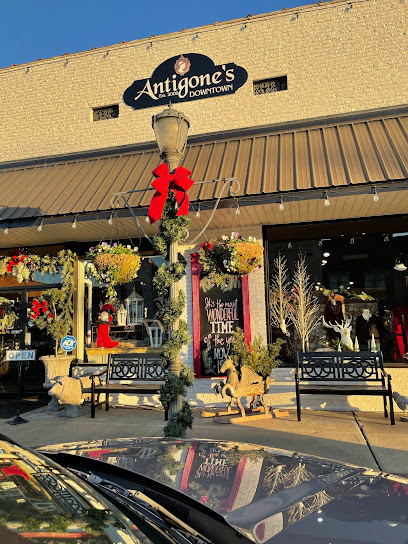
Essential bars & hidden hideouts
Flora-Bama
Discover Flora-Bama: A lively bar and live music venue on Perdido Key, where great food, vibrant atmosphere, and unforgettable experiences await.
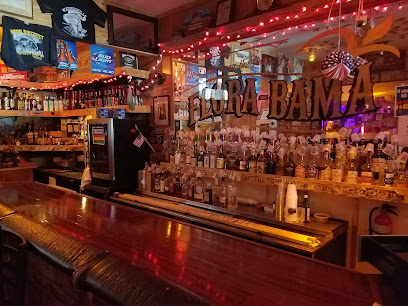
Mugshots Grill and Bar - Pace, FL
Discover the ultimate family-friendly dining experience at Mugshots Grill and Bar in Pace, FL, with delicious American cuisine and a lively atmosphere.
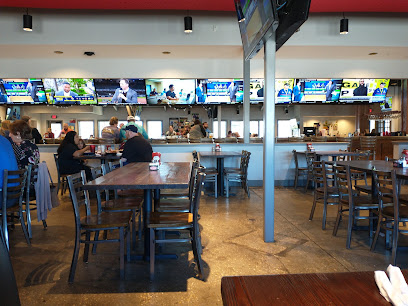
The Craft Bar and Grill
Discover The Craft Bar and Grill in Enterprise, AL - a lively American restaurant offering seafood, steak, and a vibrant atmosphere for food lovers.
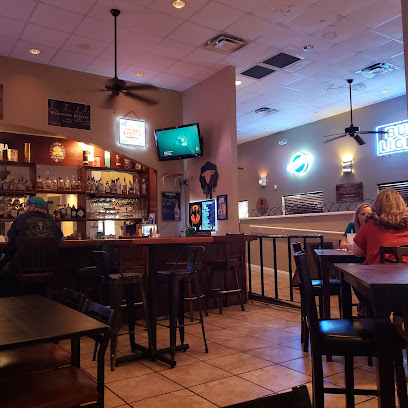
Bogey's Bar & Restaurant
Experience the best of grill dining and live music at Bogey's Bar & Restaurant in Defuniak Springs, where flavor meets entertainment.
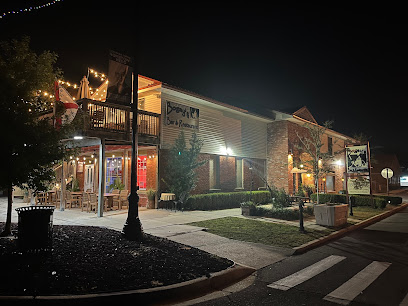
Golden Rule BBQ & Grill of Andalusia
Discover Golden Rule BBQ & Grill: A Southern culinary experience with mouthwatering BBQ, grilled delights, and a family-friendly atmosphere in Andalusia, Alabama.
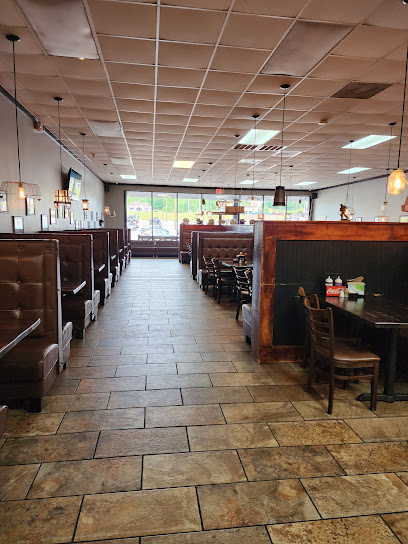
The Barrel Room Kitchen + Bar
Discover a delightful blend of grill favorites and a vibrant bar atmosphere at The Barrel Room Kitchen + Bar in Enterprise, Alabama.
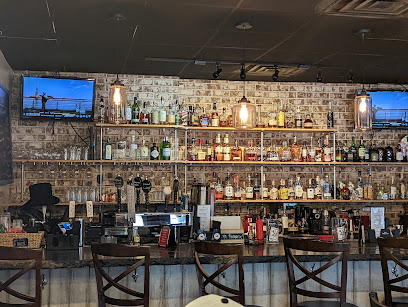
White Oak Ale House
Discover White Oak Ale House - a cozy pub in Enterprise, AL, offering delicious food and a wide selection of craft beers in a welcoming atmosphere.
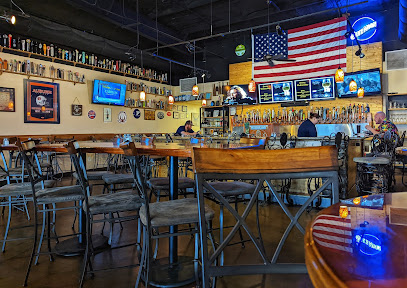
Leroy
Discover Leroy Lounge in Montgomery: A stylish bar with creative cocktails and a vibrant atmosphere perfect for a night out.
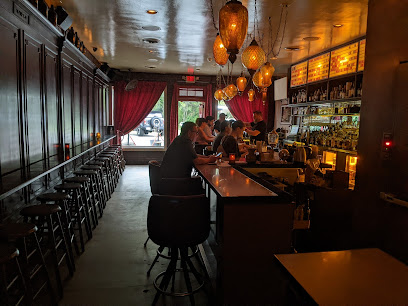
Wheelhouse
Discover the vibrant atmosphere and delicious Southern cuisine at Wheelhouse, the perfect spot for tourists in Opp, Alabama.
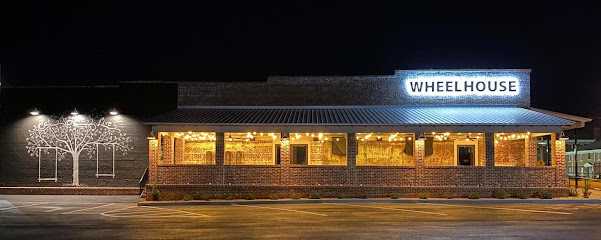
The Rabbit Hole
Experience the best of Alabama's grill cuisine at The Rabbit Hole, where delicious flavors meet a welcoming atmosphere.
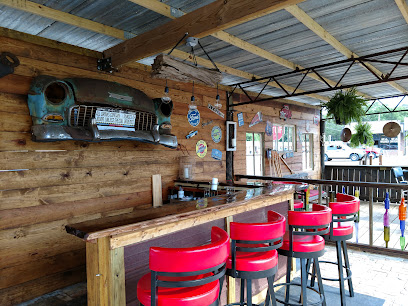
El Rey Mexican Grill And Bar
Discover the vibrant flavors of Mexico at El Rey Mexican Grill And Bar in Brewton, Alabama - a delightful dining experience awaits!
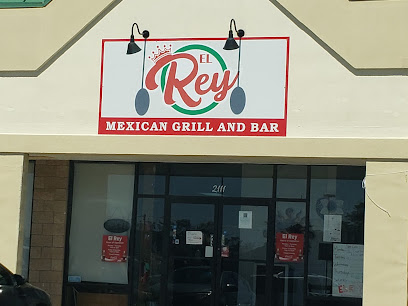
The Outpost Casual Dining Restaurant
Experience a delightful blend of American classics and seafood at The Outpost Casual Dining in New Brockton, Alabama.
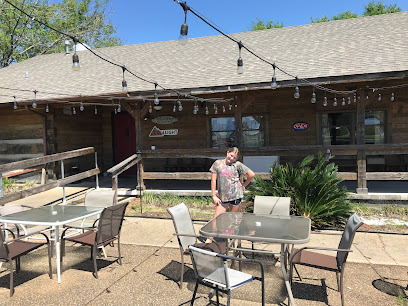
Conecuh National Forest Open Pond Recreation Area
Experience the tranquility of Conecuh National Forest Open Pond Recreation Area, a serene campground offering fishing, hiking, and picturesque natural beauty in Alabama.
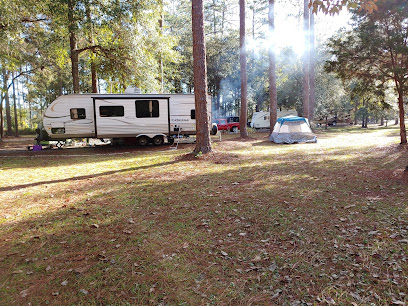
The Social on Main Tapas Bar
Discover the rich flavors and lively atmosphere at The Social on Main Tapas Bar, the perfect spot for tapas lovers in Enterprise, Alabama.
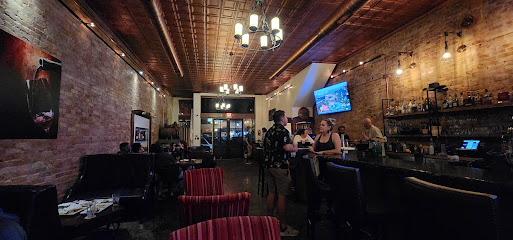
Local Phrases about Conecuh National Forest
-
- HelloHey y'all
[Hey y'all] - GoodbyeSee ya later
[See ya later] - YesYessir
[Yessir] - NoNaw
[Naw] - Please/You're welcomePlease/You're welcome
[Please/You're welcome] - Thank youThank ya kindly
[Thank ya kindly] - Excuse me/SorryBeg your pardon
[Beg your pardon] - How are you?How y'all doin'?
[How y'all doin'?] - Fine. And you?Fine. And you?
[Fine. And you?] - Do you speak English?Y'all speak English?
[Y'all speak English?] - I don't understandI don't get it
[I don't get it]
- HelloHey y'all
-
- I'd like to see the menu, pleaseCan I see the menu, please
[Can I see the menu, please] - I don't eat meatI don't eat meat
[I don't eat meat] - Cheers!Cheers!
[Cheers!] - I would like to pay, pleaseI'd like to settle up, please
[I'd like to settle up, please]
- I'd like to see the menu, pleaseCan I see the menu, please
-
- Help!Help!
[Help!] - Go away!Git!
[Git!] - Call the Police!Ring up the Sheriff!
[Ring up the Sheriff!] - Call a doctor!Call a doc!
[Call a doc!] - I'm lostI'm turned around
[I'm turned around] - I'm illI'm feelin' poorly
[I'm feelin' poorly]
- Help!Help!
-
- I'd like to buy...I'm fixin' to buy...
[I'm fixin' to buy...] - I'm just lookingI'm just browsin'
[I'm just browsin'] - How much is it?How much does it run?
[How much does it run?] - That's too expensiveThat's a bit steep
[That's a bit steep] - Can you lower the price?Can ya knock it down?
[Can ya knock it down?]
- I'd like to buy...I'm fixin' to buy...
-
- What time is it?What time is it?
[What time is it?] - It's one o'clockIt's one o'clock
[It's one o'clock] - Half past (10)Half past ten
[Half past ten] - MorningMornin'
[Mornin'] - AfternoonAfternoon
[Afternoon] - EveningEvenin'
[Evenin'] - YesterdayYesterday
[Yesterday] - TodayToday
[Today] - TomorrowTomorrow
[Tomorrow] - 1One
[One] - 2Two
[Two] - 3Three
[Three] - 4Four
[Four] - 5Five
[Five] - 6Six
[Six] - 7Seven
[Seven] - 8Eight
[Eight] - 9Nine
[Nine] - 10Ten
[Ten]
- What time is it?What time is it?
-
- Where's a/the...?Where's a/the...?
[Where's a/the...?] - What's the address?What's the address?
[What's the address?] - Can you show me (on the map)?Can you show me (on the map)?
[Can you show me (on the map)?] - When's the next (bus)?When's the next (bus)?
[When's the next (bus)?] - A ticket (to ....)A ticket (to ....)
[A ticket (to ....)]
- Where's a/the...?Where's a/the...?
History of Conecuh National Forest
-
Long before European settlers arrived, the land that is now Conecuh National Forest was inhabited by indigenous peoples, including the Creek Nation. These tribes thrived on the rich resources provided by the forest, using its woodlands and waterways for hunting, fishing, and farming. Many of their ancient trails and trade routes would later become the basis for modern roads and paths in the area.
-
The late 16th and early 17th centuries saw European explorers, primarily Spanish and French, venturing into the area. They were drawn by the promise of new trade routes and resources. The forest's rivers and streams provided vital navigation channels, although the dense woods and challenging terrain made exploration arduous.
-
During the American Civil War, the Conecuh region was a strategic area for both Union and Confederate forces. The forest provided cover and resources for troops, and its terrain was used for tactical maneuvers and skirmishes. Local lore speaks of hidden encampments and supply routes that crisscrossed the forest.
-
Following the Civil War, the Conecuh region saw a surge in logging activity. The forest's extensive longleaf pine trees were highly valued for their timber, leading to a logging boom that significantly impacted the landscape. This period saw the rise of small logging towns and railroads built to transport timber to markets.
-
In 1936, the United States government established Conecuh National Forest as part of a broader effort to conserve natural resources and manage public lands. The forest was reforested and managed to restore its ecological balance, transitioning from a heavily logged area to a protected natural reserve.
-
During World War II, parts of Conecuh National Forest were utilized for military training exercises. The forest's remote areas and varied terrain provided an ideal setting for preparing troops for combat. This period also saw the construction of temporary facilities and infrastructure to support military activities.
-
In the latter half of the 20th century, Conecuh National Forest became a focal point for conservation and restoration efforts. Initiatives aimed at preserving its unique ecosystems, such as the longleaf pine and the gopher tortoise habitats, were implemented. These efforts continue today, with the forest serving as a model for sustainable land management and wildlife conservation.
-
Conecuh National Forest holds cultural importance for the local communities and the state of Alabama. The forest is a site for outdoor recreational activities such as hiking, fishing, and bird-watching, fostering a deep connection between people and nature. It also hosts cultural events and educational programs that celebrate the region's natural heritage.
Conecuh National Forest Essentials
-
Conecuh National Forest is located in southern Alabama, near the border with Florida. The closest major airport is Pensacola International Airport (PNS) in Florida, approximately 90 miles away. From the airport, you can rent a car and drive to the forest. Another option is to fly into Mobile Regional Airport (MOB) in Alabama, which is about 125 miles from the forest. Alternatively, if you are already in Alabama, you can drive to the forest using Interstate 65, then take State Highway 41 or 29 to reach the forest.
-
The best way to explore Conecuh National Forest is by car. The forest spans over 84,000 acres, and having your own vehicle allows you to visit various trails, lakes, and camping areas at your own pace. There are several well-maintained roads within the forest, but some areas may require a vehicle with good ground clearance. If you prefer not to drive, there are local tour operators that offer guided tours of the forest.
-
The official currency in the United States is the US Dollar (USD). Credit cards are widely accepted at hotels, restaurants, and stores in nearby towns. However, it is advisable to carry some cash, especially for entrance fees, parking, and purchases at smaller establishments or in rural areas. ATMs are available in nearby towns such as Andalusia and Evergreen.
-
Conecuh National Forest is generally a safe destination for tourists. However, it is important to take standard precautions. Avoid leaving valuables in your car or unattended at campsites. Be mindful of your surroundings, especially when hiking or exploring remote areas. There are no specific high-crime areas targeting tourists, but it is always best to stay vigilant. Wildlife, such as snakes and bears, may be present, so follow safety guidelines for wildlife encounters.
-
In case of emergency, dial 911 for immediate assistance. Cell phone coverage can be spotty in some areas of the forest, so it is advisable to carry a map and let someone know your itinerary. The nearest medical facilities are located in the towns of Andalusia and Evergreen. It is recommended to have travel insurance that covers medical emergencies and outdoor activities. For minor health issues, carry a first aid kit and any necessary medications.
-
Fashion: Do wear comfortable, weather-appropriate clothing and sturdy footwear for hiking. Avoid wearing flip-flops or open-toed shoes on trails. Religion: There are no specific religious customs to observe in the forest, but always respect the natural environment and other visitors. Public Transport: Public transport options are limited, so renting a car is recommended. Greetings: A friendly nod or wave is common when passing other hikers or visitors. Eating & Drinking: Do bring your own food and water, as there are limited facilities within the forest. Pack out all trash and leave no trace.
-
To experience Conecuh National Forest like a local, visit the Open Pond Recreation Area, where you can enjoy fishing, picnicking, and hiking. The Conecuh Trail is a popular hiking trail that offers scenic views and opportunities for wildlife spotting. Engage with park rangers and locals for recommendations on hidden gems and lesser-known trails. Early morning and late afternoon are the best times to spot wildlife such as deer and birds. Don't miss the Blue Lake Recreation Area, known for its clear blue waters and excellent swimming opportunities.
Nearby Cities to Conecuh National Forest
-
Things To Do in Destin
-
Things To Do in Pensacola
-
Things To Do in Foley
-
Things To Do in Orange Beach
-
Things To Do in Daphne
-
Things To Do in Fairhope
-
Things To Do in Dothan
-
Things To Do in Mobile
-
Things To Do in Gulf Shores
-
Things To Do in Panama City Beach
-
Things To Do in Selma
-
Things To Do in Montgomery
-
Things To Do in Prattville
-
Things To Do in Petaluma
-
Things To Do in Opelika




